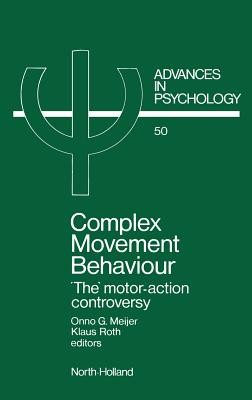
- We will send in 10–14 business days.
- Publisher: North-Holland
- ISBN-10: 0444703896
- ISBN-13: 9780444703897
- Format: 15.6 x 23.4 x 3.3 cm, hardcover
- Language: English
- SAVE -10% with code: EXTRA
Complex Movement Behaviour (e-book) (used book) | bookbook.eu
Reviews
Description
The major focus of this book is on the differences between ecological approaches to action (`action theories'), and theories on motor control and learning couched in terms of information processing (`motor theories').
Proponents of both approaches express their views in Part 1 and the differences between the approaches are further analysed. Part 2 presents empirical studies, while in Part 3, methodological, philosophical and scientific implications are discussed and the possibility of a solution is considered.EXTRA 10 % discount with code: EXTRA
The promotion ends in 20d.10:00:28
The discount code is valid when purchasing from 10 €. Discounts do not stack.
- Publisher: North-Holland
- ISBN-10: 0444703896
- ISBN-13: 9780444703897
- Format: 15.6 x 23.4 x 3.3 cm, hardcover
- Language: English English
The major focus of this book is on the differences between ecological approaches to action (`action theories'), and theories on motor control and learning couched in terms of information processing (`motor theories').
Proponents of both approaches express their views in Part 1 and the differences between the approaches are further analysed. Part 2 presents empirical studies, while in Part 3, methodological, philosophical and scientific implications are discussed and the possibility of a solution is considered.

Reviews